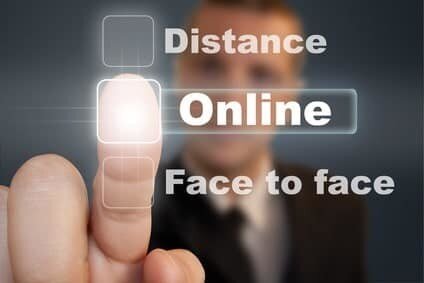
A lot will happen online in the next 13 years. After all, 13 years ago you only had the beginnings of Google and Amazon and Facebook’s Mark Zuckerberg had only just started High School. Who knows what the next 13 years online will bring? Who knows which bright young thing is only just starting out on their GCSEs yet will come up with a revolutionary idea for what we all do online. Some teenager could well be hatching an idea that makes the entire notion of train travel completely worthless.
But even if that were to happen we would still all want to meet face-to-face. Being physically located with another human being is a powerful motivator within our primal brains. After all, reproduction of the human species requires us to be physically close together…! Indeed it is this basic sexual instinct that is partly responsible for our brains wanting us to be with other people, even though we can connect virtually with almost anyone we want to.
Virtual connectivity is useful – but it is going to have to develop considerable before we get the same psychological benefits as being in the same space as another person. So, HS2 may well not be the kind of “white elephant” it seems.
But don’t go packing your travel bags just yet; you might actually need Facebook more than you think.
New research shows that using Facebook produces physiological reactions in us when we meet people face-to-face. It transpires that when people have met someone online and then subsequently meet them in the real world their “galvanic skin response” is raised. Basically this means that the electrical conductivity of your skin is altered due to microscopic increases in perspiration brought about by hormonal changes. Essentially it means your body is in a state of what is known as “arousal” – your senses are heightened, you are paying more attention and you are listening more acutely.
The study suggests that if you want a face-to-face business meeting to go well you should meet at first online. This study only looked at Facebook, but I imagine it would extend to other social networks such as LinkedIn. If you meet someone online first and then meet them in the real world subsequently, your physiological responses are likely to be increased making that real world business meeting work better because you will both be paying more attention.
Rather than dismissing virtual world meetings and saying that you really want to hop on that HS2 train to meet people face-to-face, it may well be that integrating Facebook and real-world activity more closely is the way to go to boost your business.
Now, I wonder, would Facebook sponsor HS2 and save us taxpayers the bother…?
